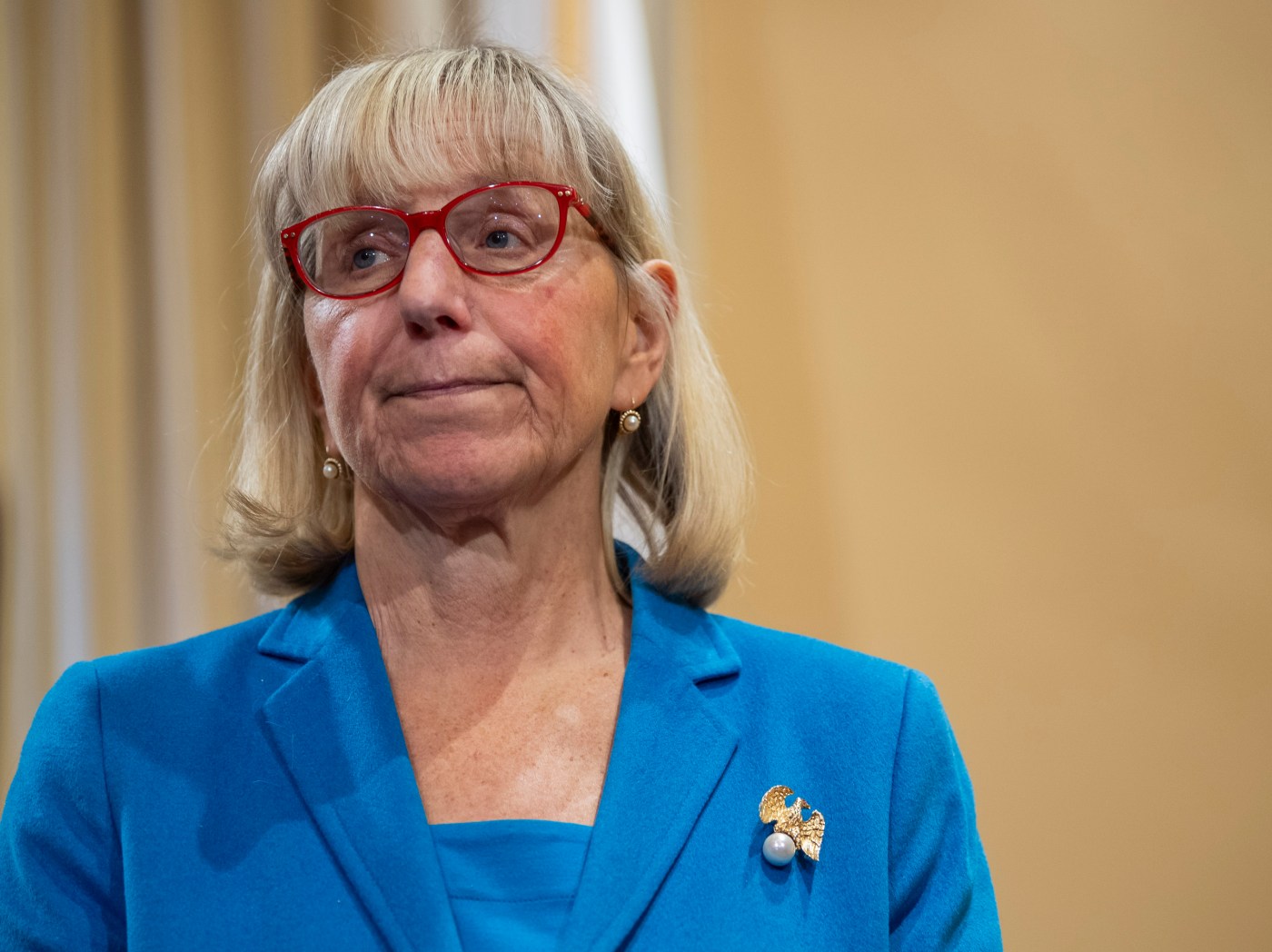
Senate ditches overflow site for migrants, homeless families ahead of Tuesday vote
Senate lawmakers plan to take up a spending bill Tuesday that would steer $250 million to help an overburdened shelter system for homeless families and migrants but does not include a provision requiring an overflow site for waitlisted families.
The chamber’s budget writing committee released a $2.8 billion supplemental budget Monday that closes out the books on fiscal year 2023, shuttles money to the shelter system, and sets aside land for a soccer stadium in Everett.
But it does not feature a House-backed idea that would direct the Healey administration to use $50 million to set up an overflow site for families who are placed on a waitlist for emergency shelter while the system is at capacity.
The bill gives the Healey administration “the flexibility it needs to continue managing thousands of families seeking shelter in the state, as the state continues to look to the federal government for help,” a spokesperson for Senate President Karen Spilka said.
“The funding allocation reflects the imperative that the state must help those vulnerable children and families entering our state, but that Massachusetts needs help from the federal government to properly manage the challenge,” the spokesperson said in a statement.
Senators gaveled in Tuesday at 11 a.m. and were expected to debate the bill later in the day. Formal sessions end for the year Wednesday, leaving lawmakers in the House and Senate little time to negotiate differences between two competing versions.
The Senate also requires the Healey administration to submit reports every two weeks to the House and Senate budget writing committees that detail the state of the emergency shelter system, money spent, and projected deficits.
Senators filed 48 amendments to their version of the spending bill, including multiple that addressed emergency shelters. An amendment from Senate Minority Leader Bruce Tarr would make the biweekly reports publicly available on the Legislature’s website.
One amendment from Sen. John Velis, a Westfield Democrat who has served as a National Guardsman on the frontlines of the shelter crisis, looks to create a nine-member working group to review the emergency shelter program, “including whether the program should be modified, repealed, or preserved.”
Sen. Ryan Fattman, a Sutton Republican, filed an amendment that would limit emergency shelter to Massachusetts residents who have lived in the state for at least a year. Democrats rejected a similar Republican-backed proposal during debate in the House last week.
The House wanted the Healey administration to set up an overflow site within 30 days of the bill becoming law or revoke the Gov. Maura Healey’s self-imposed shelter cap of 7,500 families. If a site was not created, the shelter cap would be revoked.
The cap was reached Thursday, leaving any families or pregnant people seeking shelter under a decades-old Massachusetts law to sign up for a waiting list. The state’s housing department reported 22 families on the waitlist as of noon Monday and 7,537 in shelter.
The question of what to do with both families after capacity was reached vexed advocates and providers alike, with both warning that people could end up sleeping outside during the winter.
A surge in newly-arrived migrants, often fleeing dangerous or unstable home conditions, to Massachusetts seeking shelter has put a significant strain on the system, quickly pushing the state to expand capacity through a sweeping network of hotels and motels.
Some have called on the state to keep expanding shelter capacity even as Healey argued the state had no more money, space, or personnel to keep growing indefinitely. State officials projected that without a limit, more than 13,500 families could end up in shelters at a cost of more than $1.1 billion.
The Healey administration moved last week to fund a grant program for overnight shelters for local and migrant homeless families who are not immediately placed into more permanent solutions.
The $5 million program, administered by United Way of Massachusetts Bay, opened applications to community groups Monday.
The funding for the program comes from a state housing trust fund that “is being backfilled by existing federal housing dollars,” according to a spokesperson for the Executive Office of Housing and Livable Communities.
This is a developing story…


